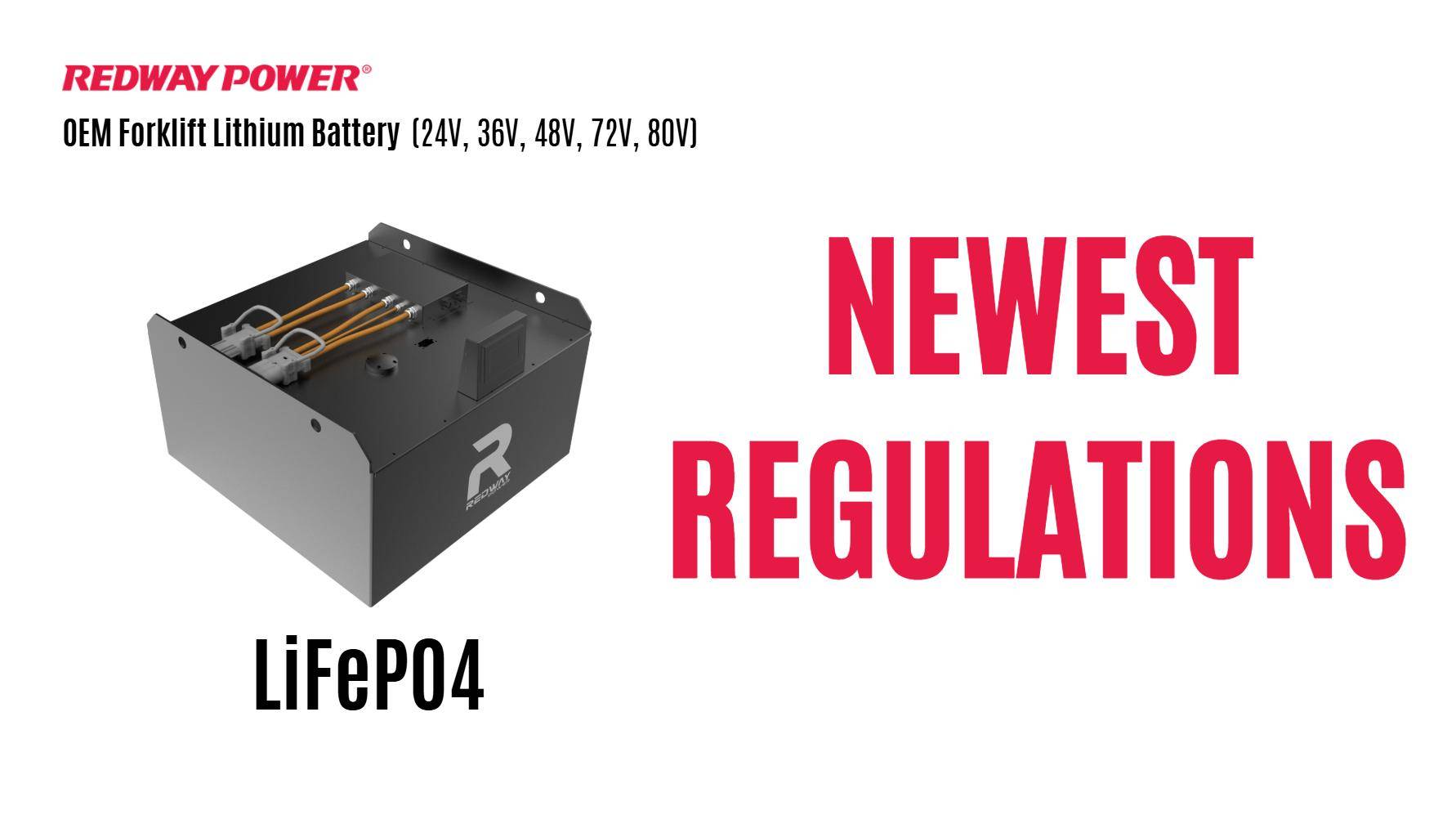
Blog
What Are the Latest Forklift Battery Regulations?

Recent regulatory changes for forklift batteries focus on environmental safety, energy efficiency, and workplace compliance. New standards require stricter emissions controls for lead-acid batteries, mandatory recycling protocols, and certifications for lithium-ion alternatives. These rules aim to reduce hazardous waste and promote sustainable energy use in industrial settings. Companies must update practices by 2024 to avoid penalties.
How Have Forklift Battery Regulations Evolved Recently?
Regulations now emphasize reducing carbon footprints and toxic material disposal. The EPA’s updated Resource Conservation and Recovery Act (RCRA) classifies spent lead-acid batteries as universal waste, simplifying storage/transport rules but requiring certified recycling. OSHA has also tightened workplace exposure limits for battery acid fumes, while the DOE promotes lithium-ion adoption through tax incentives.
The shift toward lithium-ion batteries has been accelerated by 2023 amendments to the Clean Air Act, which impose a 12% reduction in warehouse particulate emissions by 2025. Major manufacturers like Redway Power now offer hybrid systems that combine lithium-ion efficiency with lead-acid cost benefits. Recent court rulings also hold companies liable for improper battery disposal incidents occurring within their supply chains, even when using third-party recyclers. This regulatory evolution pushes facilities to implement real-time battery health monitoring systems and employee certification programs exceeding minimum OSHA standards.
What Steps Ensure Compliance With New Forklift Battery Standards?
Companies must audit battery types, update storage facilities with spill containment systems, and train staff on updated handling procedures. Lithium-ion users need thermal runaway protection and UL 2580 certification. Lead-acid battery handlers require EPA-approved recycling partnerships. Documentation of disposal chains and regular OSHA safety audits are now mandatory.
How Do New Rules Impact Forklift Fleet Operations?
Operational costs may rise 15-20% due to mandatory infrastructure upgrades like ventilation systems and fire suppression for charging areas. Lithium-ion adoption reduces downtime but requires new charging stations. Smaller fleets face challenges funding compliance; leasing EPA-compliant batteries or outsourcing charging management to third parties are growing trends.
Why Are Safety Protocols Critical Under Updated Regulations?
Revised OSHA standards mandate real-time air quality monitoring in battery rooms and emergency showers in lead-acid facilities. Lithium-ion sites need explosion-proof charging cabinets and staff certification in thermal incident response. Non-compliance fines now reach $156,259 per violation under the Clean Air Act Section 113.
What Recycling Requirements Apply to Forklift Batteries?
Per RCRA Title 40 CFR Part 273, companies must track battery recycling through EPA’s e-Manifest system. Lead-acid recyclers must recover 95% of materials; lithium-ion recyclers need ISO 14001 certification. Failing to document recycling chains triggers penalties up to $75,870 per day. California’s SB 1500 adds state-level reporting for batteries over 5 kWh.
How Do Regional Regulations Differ Globally?
The EU’s Battery Directive 2023 mandates carbon footprint labeling and 70% recycled cobalt in new lithium batteries. China’s GB/T 34148-2023 standard enforces battery traceability QR codes. Brazil’s CONAMA Resolution 523 requires firewalls between charging stations and storage. Multinational fleets must use compliance software like EnviroGuard to track regional variations.
| Region | Key Requirement | Enforcement Date |
|---|---|---|
| European Union | Carbon footprint labels | Q3 2024 |
| China | QR code traceability | January 2023 |
| Brazil | Charging station firewalls | June 2024 |
What Are the Cost Implications of Regulatory Compliance?
Lead-acid compliance costs average $8,200/year for mid-sized fleets (20-50 forklifts). Lithium-ion transition costs range from $12,000-$45,000 depending on charging infrastructure. Tax credits like IRS Form 8911 offset 30% of EV infrastructure costs. Non-compliance risks 2-5% of annual revenue in EPA fines plus operational shutdowns.
Hidden costs include employee retraining programs averaging $2,500 per operator and mandatory software upgrades for battery management systems. The table below breaks down typical compliance expenses:
| Expense Category | Lead-Acid | Lithium-Ion |
|---|---|---|
| Recycling Fees | $1.20/kg | $4.75/kg |
| Safety Equipment | $3,800 | $7,500 |
| Certification | $450/year | $1,200/year |
What Future Regulatory Trends Should Companies Anticipate?
Expect hydrogen fuel cell certification requirements by 2026 and AI-driven battery lifecycle tracking per the proposed EU Battery Passport. The EPA’s 2025 Strategic Plan suggests banning lead-acid in federal contracts. Proactive companies are piloting sodium-ion batteries and blockchain-based material tracing systems.
Expert Views
“Regulatory pressures are accelerating lithium-ion adoption, but many overlook the need for staff re-training. A Redway Power study showed 68% of battery incidents stem from improper charging of new tech, not the batteries themselves. Future-proofing requires investing in both equipment and workforce upskilling.”
– Redway Power Compliance Team
Conclusion
The regulatory landscape for forklift batteries is reshaping industrial operations globally. Companies balancing proactive compliance with emerging technologies like lithium-ion and recycling AI will maintain operational continuity while avoiding escalating penalties. Regular audits and partnerships with certified recyclers remain critical in this dynamic environment.
FAQs
- Do regulations apply to all forklift battery types?
- Yes. Lead-acid, lithium-ion, nickel-cadmium, and emerging technologies like solid-state batteries all face specific EPA and OSHA rules. Lithium-ion has additional UN 38.3 transportation certification requirements.
- How often must compliance audits occur?
- OSHA requires quarterly inspections for facilities with 50+ batteries. Smaller operations need annual third-party audits. All must document findings for 3 years.
- Can old lead-acid batteries still be used?
- Yes until 2030 in most states, but with stricter handling rules. California’s AB 2068 phases them out for warehouses over 100,000 sq ft starting 2025.
- Why Is LiFePO4 the Future of Forklift Batteries?
- What Are the Latest Innovations in LiFePO4 Forklift Battery Technology
- Why Are LiFePO4 Batteries Dominating Material Handling Markets?
- What Are the Latest Forklift Battery Regulations?
- Why Are Companies Switching to LiFePO4 Forklift Batteries?
- How Can You Stay Updated on Forklift Battery Technology Events?








